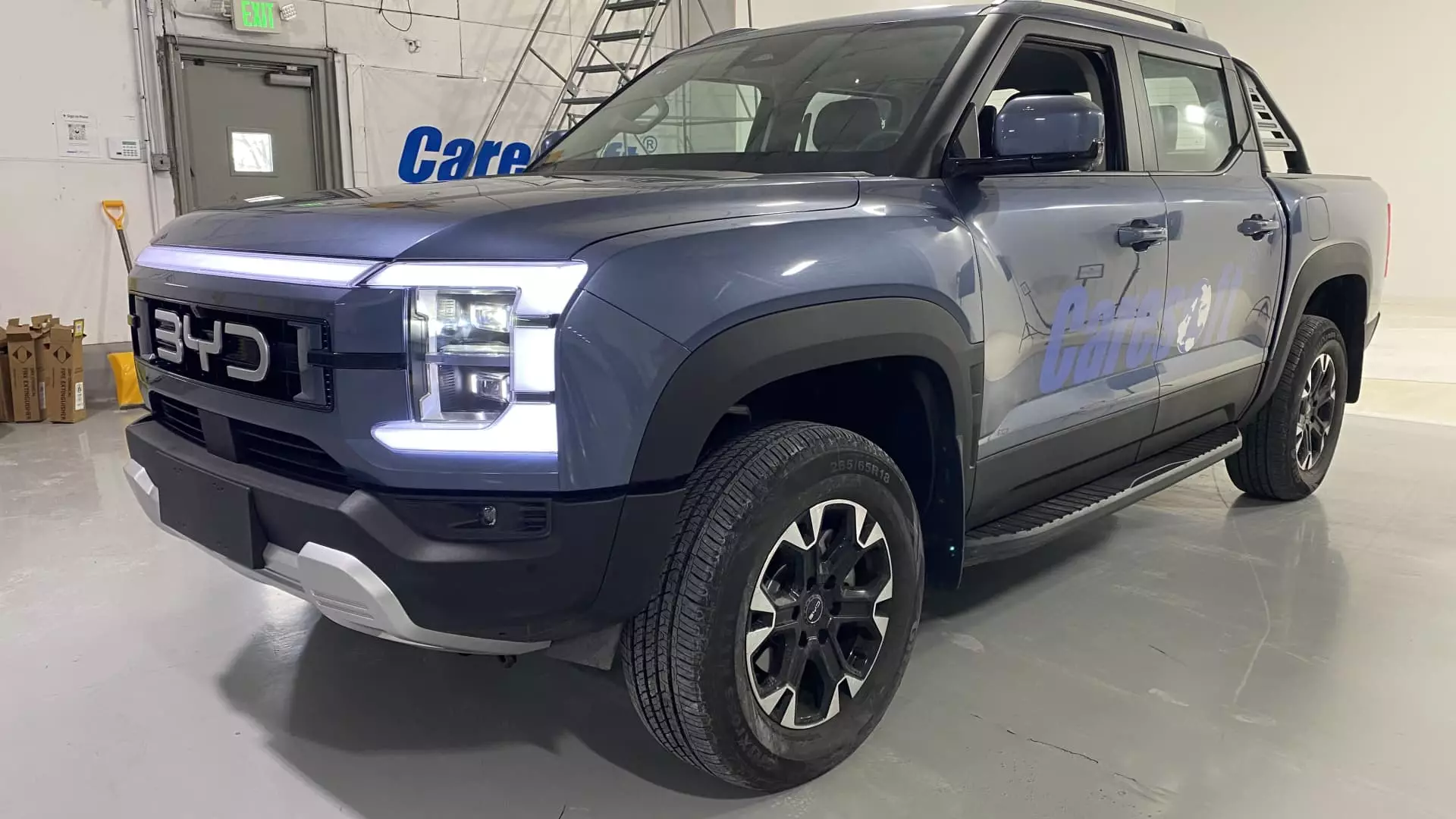In recent years, the automotive landscape has witnessed a seismic shift. As American car manufacturers traditionally dominated the global market, the ascent of Chinese automakers has disrupted established norms. One significant player in this emergent scenario is BYD Auto, whose latest product, the BYD Shark, poses a formidable challenge to established pickup trucks, particularly from American and Japanese manufacturers.
At first glance, the BYD Shark is a striking vehicle that can easily be mistaken for an American-made pickup. Its design incorporates elements reminiscent of popular models like the Ford Explorer and the Ford F-150, which have long dominated the U.S. market. The visual appeal of this midsize truck is expected to resonate globally, particularly in regions where smaller pickups are in high demand.
Under the hood, the Shark features a unique hybrid powertrain comprising an electric battery system and a compact 1.5-liter internal combustion engine. This setup allows the vehicle to function as either a fully electric vehicle or a hybrid, boasting an impressive combined range of over 500 miles. The versatility of its powertrain is aimed at appealing to a broad spectrum of consumers looking for economical and environmentally friendly alternatives in the pickup segment.
The arrival of the BYD Shark at a starting price of around $44,000 in Mexico positions it strategically against other mid-range pickup trucks. This pricing strategy could disrupt the market share of established competitors, such as Ford’s Ranger and Toyota’s Tacoma, which have enjoyed considerable successes in similar markets. The Shark’s affordability, combined with its innovative features, can attract cost-conscious consumers seeking quality vehicles.
With projections indicating that BYD might export over 10,000 Shark models in 2024, the implications for the automotive industry become increasingly apparent. As the company expands production and marketing efforts, particularly in key markets like Australia and Brazil, it poses a direct threat to the sales of traditional automakers. For U.S.-based firms, pickups serve as critical revenue streams, generating millions of sales annually. With the increasing competition from Chinese manufacturers like BYD, American brands must be agile and innovative to maintain their market positions.
The Competitive Landscape and Industry Response
BYD’s ascent is not going unnoticed. Ford’s CEO, Jim Farley, acknowledged the Shark’s market potential, noting that competition in the pickup sector is intensifying. Meanwhile, Toyota remains committed to addressing global market needs, emphasizing a strategy that allows for localized responses to competition. The competitive landscape is shifting; as more Chinese automakers enter international markets with competitive pricing and innovative designs, traditional automotive giants are compelled to reassess their strategies to maintain market relevance.
Analysts have noted that BYD has tripled its market share in vehicle exports from China, a clear indicator of changing tides in the automotive market. The company’s proactive approach to reaching a global consumer base reflects a broader trend toward increased competition from China, driven by advancements in technology and manufacturing efficiencies.
The Importance of Innovation and Adaptation
The ability to innovate and adapt swiftly is crucial in this evolving market. BYD has showcased its engineering capabilities through vehicles like the Shark, which combines traditional aspects of pickup design with modern electric vehicle technologies. The company’s exploration of advanced battery placements and unique powertrain combinations indicates a commitment to addressing consumer demands for performance, efficiency, and sustainability.
However, as Caresoft Global’s analysis points out, while the Shark shows promise, it is not without its flaws. Early evaluations indicate areas needing improvement in ride quality and handling, which could affect consumer reception in more discerning markets like the U.S. Traditional automakers should take note; the willingness to learn from competitors, particularly in areas like ride enjoyment and operational refinement, can serve as a pathway to regain market traction.
As BYD Auto continues to break boundaries with innovative offerings like the Shark, the automotive industry stands on the precipice of significant change. The competition spurred by manufacturers like BYD not only compels traditional players to adapt but also signals an era where consumers benefit from enhanced choices, better pricing, and advanced automotive technology.
In navigating this complex landscape, established automakers will need to enhance their own product lines, focusing on sustainability and consumer preferences. The automotive space is racing toward a future where adaptability and responsiveness to market shifts will determine success; BYD may be just the harbinger of that change. With careful observation and proactive strategies, traditional automotive giants can weather the disruption and thrive in an increasingly competitive environment.

